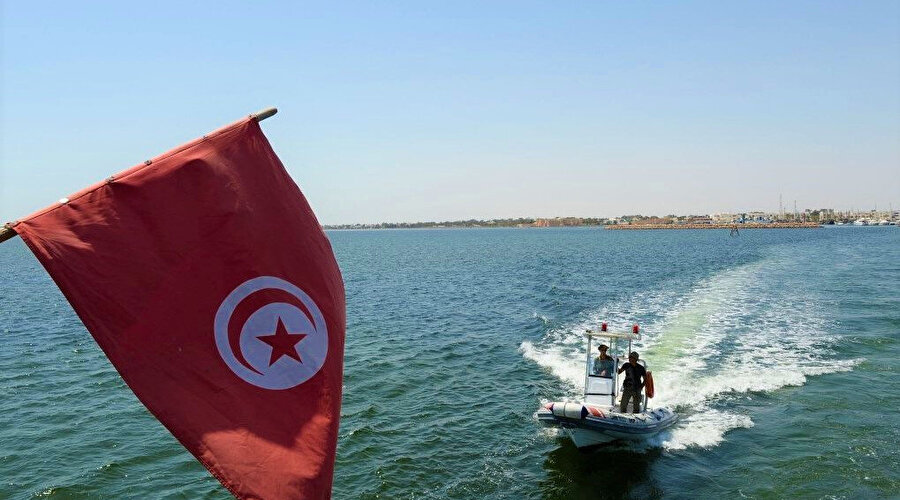A media investigation is shedding light on a hitherto little-known organization called the International Centre for Migration Policy Development (ICMPD). Far away from public scrutiny, the Vienna-based organization has been playing an outsized role in European migration policy.
From training camps for border guards to ‘dead body management’ — an organization called the International Centre for Migration Policy Development (ICMPD) has become an important player in EU migration policy since 2016. Largely unbeknownst to the wider public, it advises countries in the background, creates international networks, co-develops ideas for asylum projects and has carried out migration management projects itself in EU border regions.
Now, an investigation made public this week by the Germany-based freedom of information portal FragDenStaat and a team of international journalists shows how the ICMPD shapes the EU’s migration policy at the bloc’s external borders in the Western Balkans and North Africa.
Supporting coast guards
The journalists, who received hundreds of documents in response to numerous requests filed under the EU and German Freedom of Information laws as well as view internal ICMPD documents, found that one of the ways the organization helps to shape policy is through its support of the coast guards in Libya, Morocco, and Tunisia — all entities accused of human rights violations and presumably responsible for thousands of illegal pullbacks in the Mediterranean.
Launched in 1993, the organization’s staff headcount, budget and number of projects grew steadily under former Austrian Foreign Minister Michael Spindelegger, who was appointed Director General in 2016. He is member of the ÖVP, Austria’s biggest governing party, and the political foster father of Austria’s former chancellor Sebastian Kurz.
According to its own website, the ICMPD currently employs close to 500 people and is active in more than 90 countries with 80 ongoing projects.
As an international organization, the ICMPD is subject to few transparency obligations, allowing it to “create and host spaces where member states like Germany can discuss migration policy out of the public eye,” according to FragDenStaat.
‘Digital refugee card’
FragDenStaat shared the findings of its investigation with Austrian daily DerStandard and German investigative TV magazine ZDF Magazin Royal, which in its latest episode showed how the so-called digital refugee card (Flüchtlingskarte in German) was one of the ICMPD’s flagship projects.
The organization helped propose the card in cooperation with the Bavarian Interior Ministry in an attempt to impose massive restrictions on the daily lives of refugees in the German state. For example, refugees would have only been allowed to make cash transactions and purchases at specified locations.
According to the project description, which FragDenStaat made public, the card “could be extended to include the possibility of direct retrieval of cardholder data with government/police terminals/equipment.”
ICMPD exchanged ideas on the development of such a card in 2019 not only with the ministry, but also the now internationally wanted white-collar criminal Jan Marsalek of the now insolvent German financial services provider Wirecard.
In response to ICMPD’s Spindelegger saying it could “serve as a model for similar projects in Europe,” former federal Interior Minister Horst Seehofer described the refugee card as a “flagship project” and noted that success in this “sensitive area” was “indispensable”.
While the project hasn’t come to fruition yet, the Bavarian Interior Ministry said it was currently looking for an implementing company, according to FragDenStaat.
Border management in Libya, Tunisia
ICMPD has also been active in both Libya and Tunisia — two North African countries whose controversial coast guard units are equipped, financed and equipped by different EU countries to help the coast guards intercept and returning migrants before they can reach European shores.
In Libya, where the UN Human Rights Council in April declared there are “reasonable grounds to believe that crimes against humanity have been committed against Libyans and migrants throughout Libya since 2016,” the ICMDP was involved in establishing a training center for Libya’s coast guard, among other things.
In Tunisia, where human rights abuses are mounting as well, especially after President Kais Saied’s controversial anti-immigrant statements in February incited attacks on sub-Saharan migrants amid a wider crackdown, the ICMDP offered “support programs” for the Tunisian government in the field of “integrated border management” to help establish training centers for the purpose of border management.
The ICMPD also helped prepare the delivery of underwater drones, radars and a dedicated IT system of Germany’s federal police to Tunisia. Moreover, it facilitated a “training on the handling of dead bodies at sea” together with French security authorities in 2021.
When confronted with these findings, according to FragDenStaat, ICMPD said it learned about the violence emanating from the Tunisian coast guard through the media and therefore cannot comment further.
Source : Info Migrants









